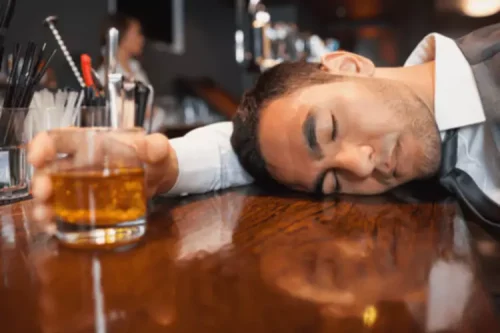

People with a history of alcohol misuse seem to have a greater risk of developing sudden unexpected death in epilepsy (SUDEP) than people with epilepsy with no history. People who chronically consume large amounts of alcohol seem to be more likely to have epilepsy than people who don’t. Concomitant substance abuse should be identified as substances such as sedatives may modify symptom presentation and affect response to treatment of alcohol withdrawal. The Alcohol, Smoking and Substance Involvement Screening Test (ASSIST), developed by the World Health Organization is recommended for the identification of polysubstance abuse (70). (4) Chronic ethanol intake increases the number of L-type calcium channels in different brain regions.
Immediate medical intervention is essential for any seizure lasting over 5 minutes (status epilepticus) when continuous or if there are three successive seizures without consciousness being regained in between. It’s rare for people going through alcohol withdrawal to experience hallucinations more than 48 hours after their last drink. Alcohol withdrawal symptoms can start as early as two hours after your last drink, but it’s most likely to start between six hours to alcohol withdrawal seizure a day after your last drink, according to guidelines from American Family Physician. The main ways to prevent alcohol withdrawal are to avoid alcohol altogether or to get professional help as soon as possible if you think you’re developing alcohol use disorder. Your healthcare provider will recommend and encourage treatment for alcohol use disorder. When you stop consuming alcohol after prolonged, heavy use, your CNS can’t respond or regulate itself fast enough.

Some who were addicted to alcohol were provided liquor to allay their cravings and head off withdrawal. Health officials say that though versions of MAP were used elsewhere as part of isolation and quarantine efforts during the COVID-19 pandemic, San Francisco is the first city to implement the model permanently. Fifty-five clients have gone through the treatment − they’re expected to stay at least a year − and they’re offered medication and therapy in addition to the drinks, which can be beer, wine or vodka. The risk factors for DT were analyzed by Ferguson et al.[12] and further factors are tabulated in Table 4. When prescribed by a doctor and used for short periods of time, such as the day of surgery or for less than two weeks (but not every night) to aid sleep, benzodiazepines are safe to take.
Our skilled and credentialed team at Gratitude Lodge work closely with every patient going through drug detox, facilitating the beginnings of a successful recovery at our rehab addiction centers in Orange County, CA. Additionally, medications used to treat seizures can reduce your alcohol tolerance, meaning that the effects of alcohol are felt more quickly and intensely. This rapid intoxication can be particularly problematic because many side effects of seizure medications mimic the immediate effects of alcohol. Those sensitive to alcohol or seizure medications might find their combined effects especially challenging.
When the seizure begins during the aura stage, it may be called a partial seizure or a simple focal seizure. If it comes with warning signs, you could experience deja vu, intense anxiety, muscle twitches, loss of bowel or bladder control, numbness or tingling, nausea, and confusion. However, if you’re experiencing some of these symptoms, it could also mean you are about to experience a potential symptom that is particular to alcohol withdrawal called delirium tremens. Depressants like alcohol can cause your muscles to relax, but withdrawal can cause tremors, muscle tightness, and seizures.
